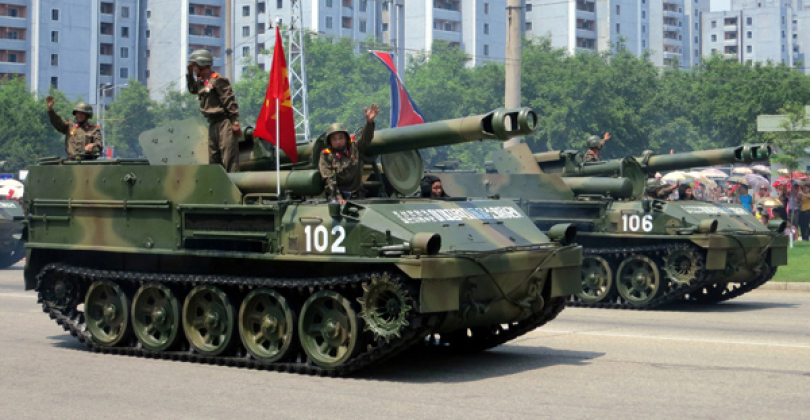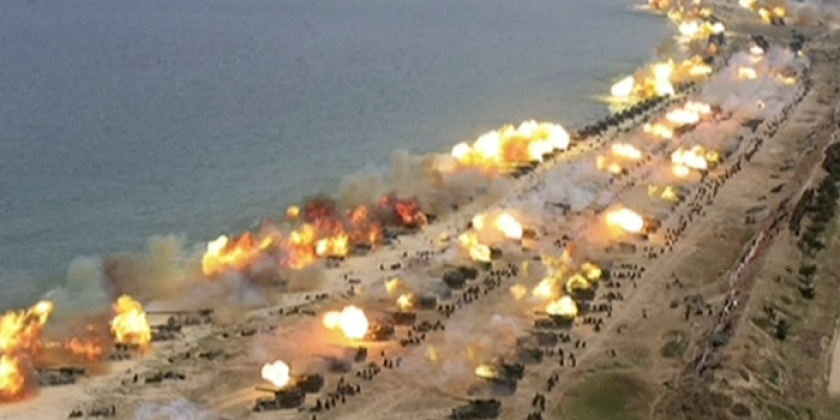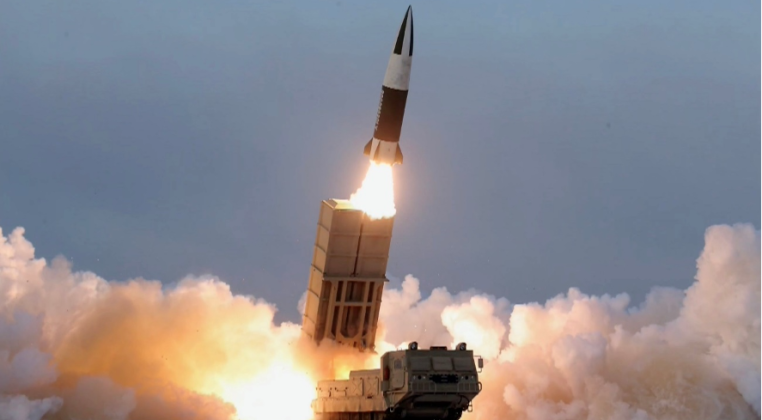News
Experts Offer Insight: Why North Korea May Be the Ideal Arms Supplier For Russia’s War Effort in Ukraine

Following reports from U.S. intelligence on September 5 that Russia was purchasing “millions of North Korean artillery shells and rockets” for use in its war effort in Ukraine, a number of experts have commented on the potential usefulness of the East Asian state’s defence sector to support the Russian Military and the Army in particular. North Korea remains technically at war with the United States, meaning arming Russia represents a means not only of earning revenues and strengthening security ties with Moscow, but also of undermining American security interests as the war remains a key priority for Washington. The Russian Military has been fighting not only Ukrainian forces, but also a large network of Western special forces, volunteer militias, advisors and others, part of which the New York Times referred to as a “stealth network” deployed by Western powers to fight Russia. Reports of North Korean arms sales comes after Russian and Eastern Ukrainian sources have repeatedly indicated that North Korean rocket artillery systems, personnel and possibly even construction workers could be dispatched to the front.
Jack Watling a senior research fellow at the Royal United Services Institute, an institution with considerable expertise in Russian security, stated regarding the possibility of Russian acquisitions of North Korean equipment: “It is fairly well established that Russians have been going around since Feb. 2022, buying up stocks of 152mm and 122mm in any way they can. And that includes North Korea.” The acquisition was “part of a fairly systematic attempt to buy up global supplies” by Russia, and that “North Korea uses many of the same calibers for current and older systems that the Russians have brought back to service.” Watling further added that acquisitions would be made not only with the immediate needs of the war in Ukraine in mind, but also in preparation “in case they face other threats.” He most notably claimed that Moscow had for some time pushed for Pyongyang to support its war effort, which was “not just limited to supplying ammunition” – a possible reference to the speculated future deployments of complete weapons systems and personnel.

Expert on East Asian security and author of Immovable Object: North Korea’s 70 years at War with American Power A. B. Abrams highlighted that the deterioration and contraction of Russian industry and of its armed forces since 1992 means while it could once produce war materials on a scale dwarfing North Korean industry, this is no longer the case. “This affects not only the quantities of armaments produced, but also their performances, a notable example being that North Korean rocket artillery systems now have over triple the range of their top Russian counterparts. North Korea’s greater emphasis on ground warfare and particularly artillery capabilities in its military modernisation has also been a factor,” he stated. Abrams contrasted North Korea’s decades long preparations for a possible war with the United States, to Russia which for most of the last three decades saw little threat of war with the West, highlighting that this made North Korea a particularly valuable partner despite its smaller size.
“As North Korea has recently brought new classes of ballistic and cruise missiles into production, these too may be considered by Russia to supplement its own productive capacities as such weapons have been rapidly expended in Ukraine,” Abrams added. He noted that major Russian purchases of a wider range of weapons could contribute to North Korea’s post COVID-19 economic recovery and pave the way to expanded defence cooperation with Russia and its security partners such as Belarus. Abrams’ book notably emphasised that Korean weapons, expertise and at times even personnel have been made widely available to U.S. adversaries in war time, which dated back to the Cuban Missile Crisis and Vietnam War.

Regarding the munitions that would be delivered, specialist in North Korean military capabilities for the Oryx blog Joost Oliemans highlighted that Russia would likely acquire “at least relatively new production, either produced on order or from their existing stocks, which are sizeable enough to accommodate large orders without additional production for many types of weaponry.” Regarding how Korean armaments would reach Russia, with which it shares a land border, Go Myung-hyun of the Asan Institute for Policy Studies noted: “There is a great railway connection with Russia through Tumangang and Khasan. Logistics-wise, it’s very simple… And North Korea would prefer rail over shipping articles by boat, because they are probably worried about interdiction.” He noted that the East Asian state was “more or less self-sufficient in arms production” and had “plenty” of 122mm and 152mm artillery – calibers also used by the Russian Military. North Korea’s larger 170mm guns have no equivalents in the Russian Army, however.












